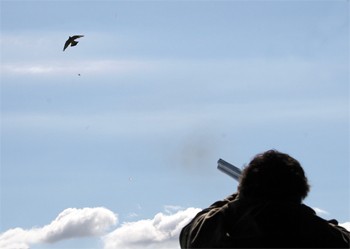European Union clarifies law on shooting wild birds

In the UK, the law allows game, such as pigeon and pheasant, to be shot in season and pests to be controlled under the terms of general licences.
The new Birds Directive guide will help to define the law surrounding shooting wild birds.
The guide clarifies the hunting requirements of the 1979 Wild Birds Directive, the law that grants EU member states the right to make derogations allowing the shooting of specific birds.
The publication of the guide comes as the Birds Directive itself celebrates its 30th anniversary on 2 April, making it the EU’s oldest piece of nature legislation and one of the most important, providing protection for all wild bird species occurring throughout the Union.
Organisations representing UK shooters welcomed the guide’s launch.
BASC’s John Swift told Shooting Times magazine: “First, it gives high-level recognition to, and greater clarification of, the provisions of the Directive that cover the taking of wild birds, i.e. our sport. It is once again made clear that shooting within these guidelines is explicitly recognised and supported by the European Commission as a sustainable activity.”
Mr Swift added the guide also recognises the massive amount of habitat conservation provided by shooters and its benefit on biodiversity: “This official launch, together with the guide’s publication in all 22 official languages of the EU, reduces the future danger of member states using the Birds Directive as an excuse for local anti-shooting laws – and it will help resolve existing areas of conflict.”
A spokesman for the Federation of Associations for Hunting and Conservation of the EU (FACE) commented that the guide will iron out any disputes concerning interpretation of the Birds directive: “Though the guide has been online for nearly five years, with this publication it has only now been officially recognised as the key point of reference for the hunting of birds in the EU. In respect of shooting, it clearly states that the Birds Directive fully recognises the legitimacy of hunting as a sustainable activity, and that it provides social, cultural, economic and environmental benefits.”








